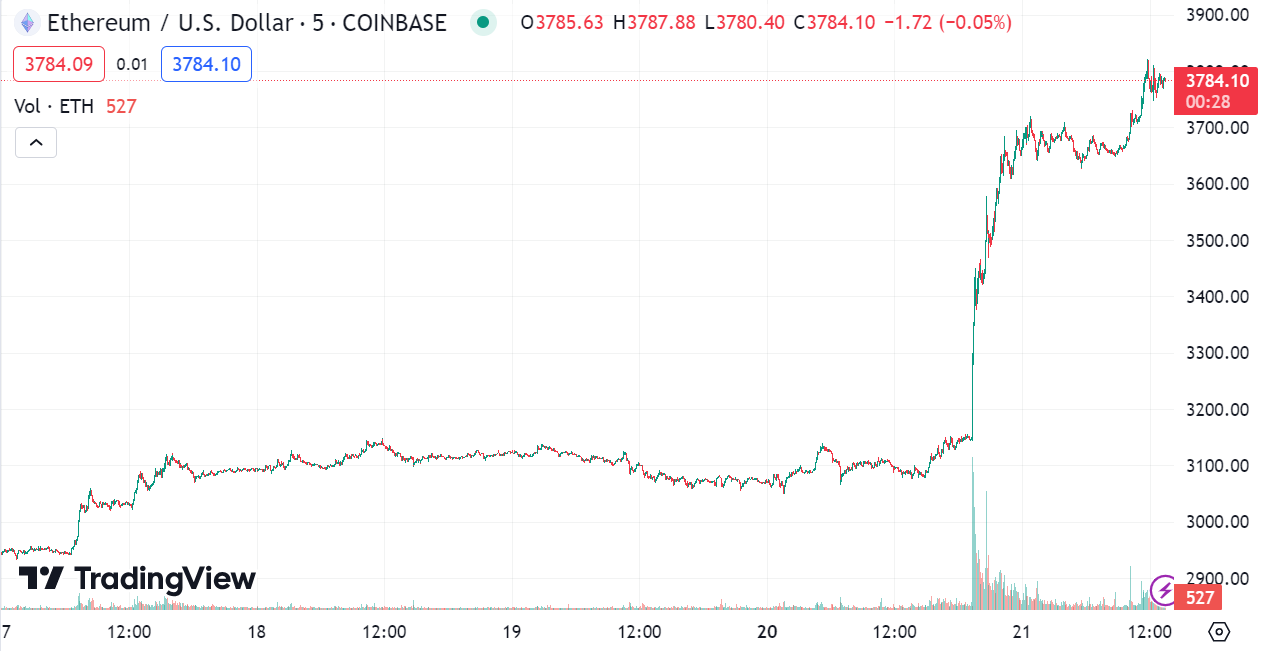
Fraudsters are targetting South Korean crypto users with an Ethereum-themed scam, token holders in the country said on May 21.
According to the South Korean media outlet Asia Time, scammers are sending alarming text messages to smartphone users, warning them that their ETH coins will be “burned” on May 22 if they do not act fast.
Ethereum-themed Crypto Scam ‘Originating from Bogus Exchanges’
The scam comes as police and regulators report that “cybercrime relating to virtual assets” is “on the rise.”
Crypto community members took to online meeting places to warn fellow token holders that a “phishing text message” was circulating. One post warned:
“You could easily fall for it, so be careful.”
The Ether (ETH) price exploded higher on Monday as traders bet that the SEC will approve Ethereum ETFs as soon as this week following the emergence of rumors of a major SEC u-turn. ETH was last trading with gains of more than 10% in the $3,400 region. …https://t.co/nqEc2tAqhS
— Cryptonews.com (@cryptonews) May 20, 2024
Some warned that scammers use technology that allows their messages to bypass spam filters.
Some of the text messages claim to originate from a “global cryptocurrency exchange” named Bit-Finance.
The messages warn that “due to” token holders’ “long-term inactivity,” their Ethereum holdings “will be burned on May 22.”

The message informs crypto holders that they should “make withdrawals as soon as possible” to avoid losing their funds.
Recipients are prompted to click on a link that will help them understand the process and safeguard their funds.
Community Members Post Warnings
One community member posted a screenshot showing that the senders claimed a total of ETH 54.5 of their funds would be burned if they did not act.
The link enclosed appears to navigate smartphone users to a phishing site, where scammers attempt to prompt people to enter wallet details and passwords.
NEW: An issuer source tells me re the spot $ETH ETF development:
Things are “evolving in real time.” https://t.co/3NwkCrPIl3
— Eleanor Terrett (@EleanorTerrett) May 20, 2024
The media outlet noted that “cyber fraud using real virtual assets is increasing” in South Korea.
Last year, the National Police Agency said that it had dealt with 167,688 cyber fraud cases over the course of the year. That represents a 7.68% increase on 2022 figures.
“Crimes using virtual assets” accounted for 38.3% of the 2023 total, the police agency explained.
Citizens have also filed a total of 2,209 reports to the regulatory Financial Supervisory Service from January to April this year.
In each case, victims claimed they had suffered financial losses because of crypto scammers.
The regulator said that 17.7% of these cases are related to phishing attacks. It has previously claimed that crypto-themed phishing is “rampant” in South Korea.
Police Vow to ‘Fight Back’
Police experts said the rise in attacks was an “opportunistic” move from scammers, with crypto markets buoyant.
In recent months, South Korean markets were spurred when many exchanges began offering commission-free crypto trading.
This, experts agreed, has also led to a rise in transaction volumes – and a subsequent rise in phishing attacks.
An official from the Cyber Investigation Unit at the National Police Agency said that crypto criminals were increasingly making use of so-called “daepo phones.”
This term refers to cell phone numbers created using stolen name and social security number credentials. The official said:
“Recently, fraud has become more sophisticated. There has been an increase in virtual asset-related crimes using daepo phones, and chat apps like KakaoTalk and Telegram. However, we are fighting back. We are using investigation methods that track the flow of transactions.”
Discussions on the launch of spot bitcoin exchange-traded funds (ETFs) are poised to take center stage, propelled by the resounding victory of the main opposition Democratic Party of Korea (DPK) in the April 10 general elections.https://t.co/SCuLmwNVyf
— The Korea Times (@koreatimescokr) April 21, 2024
Last month, South Korean media outlets reported that phishing attackers are now carefully targeting credit card users and the victims of crypto scams.
Typically, these attackers try to drive their victims onto fake crypto exchanges and wallet platforms.
Credit: Source link




